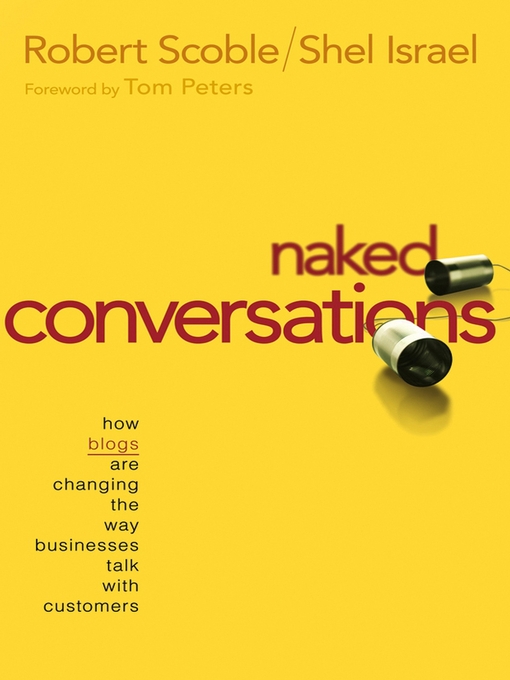From the creator of the number one business blog comes a powerful exploration of how, and why, businesses had better be blogging: Naked Conversations.
According to experts Robert Scoble and Shel Israel, blogs offer businesses something that has long been lacking in their communication with customers -- meaningful dialogue. Devoid of corporate-speak and empty promises, business blogs can humanize communication, bringing companies and their constituencies together in a way that improves both image and bottom line.
The authors use more than 50 case histories to explain why blogging is an efficient and credible method of business communication. You'll find yourself excited about the possibilities blogs present after reading just a few pages. Discover how:
- Prominent business leaders, including Mark Cuban of the Dallas Mavericks, Bob Lutz from General Motors, and Jonathan Schwartz of Sun Microsystems, are beginning to use blogs to connect with their customers in new ways.
- Blogging has changed the rules of communication and competition.
- You can launch an effective blogging strategy and the reasons why you should.


